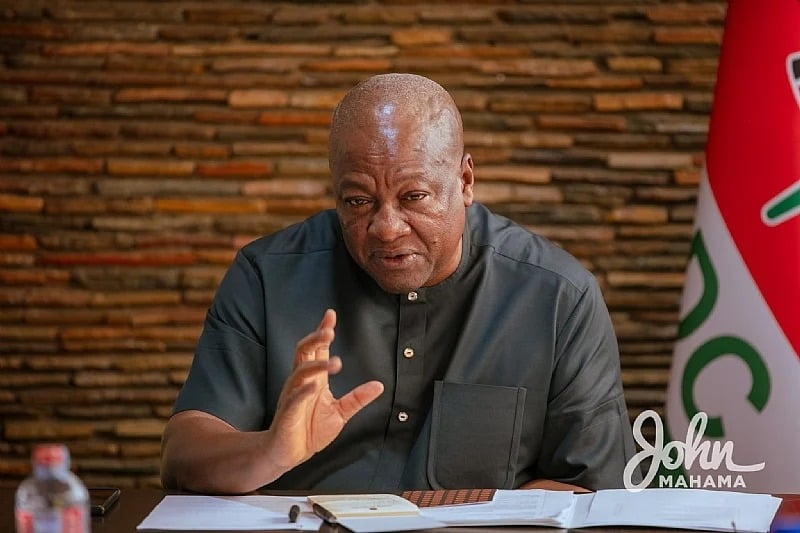The meeting between President John Dramani Mahama and the Ghana Bar Association (GBA), led by its President Efua Ghartey, served as a critical platform for addressing pressing legal and human rights concerns, particularly the issue of unresolved high-profile murders that have cast a long shadow over the nation’s pursuit of justice. The recent arrest of Daniel Owusu Koranteng, a former associate of slain investigative journalist Ahmed Suale, has injected renewed urgency into the demand for accountability and brought the Suale case back into sharp focus. President Mahama underscored the importance of leveraging this development by conducting a thorough and expeditious interrogation of Koranteng, emphasizing its potential to unearth crucial leads that could unravel the complex web of actors involved in this heinous crime. The president’s call signifies not only a commitment to resolving the Suale case but also a broader commitment to upholding the rule of law and protecting the lives and freedoms of all citizens.
The murder of Ahmed Suale, an investigative journalist known for his work uncovering corruption and criminal activities, sent shockwaves through Ghana and the international community. His dedication to exposing wrongdoing made him a target, and his untimely death served as a grim reminder of the risks faced by journalists and activists who challenge powerful interests. The subsequent lack of concrete progress in bringing the perpetrators to justice further fueled public outrage and eroded trust in the ability of law enforcement agencies to handle such sensitive cases effectively. The arrest of Koranteng, therefore, represents a crucial turning point and a potential breakthrough in the long-stalled investigation. The hope is that a meticulous and transparent interrogation process will lead to a full accounting of the events surrounding Suale’s murder and bring closure to his family and colleagues.
President Mahama’s emphasis on the need for a swift and comprehensive investigation is not merely a call for due process; it reflects a recognition of the broader implications of unresolved high-profile murders for Ghana’s democratic fabric. Such crimes, when left unaddressed, can foster a climate of fear and impunity, undermining fundamental rights and freedoms. They can also erode public trust in institutions responsible for upholding the rule of law, creating a sense of vulnerability among citizens and potentially emboldening those who seek to silence dissent or evade accountability. By prioritizing the pursuit of justice in these cases, the government sends a strong message that such acts will not be tolerated and that the perpetrators will be held responsible, regardless of their position or influence.
The president’s call for expedited legal action in another unresolved high-profile murder, that of former Member of Parliament JB Danquah, further underscores the government’s commitment to tackling this critical issue. The Danquah case, like the Suale murder, has lingered unresolved for years, leaving a gaping wound in the national consciousness and raising concerns about the effectiveness of the justice system. By highlighting both cases, President Mahama emphasizes the systemic nature of the problem and the need for a concerted effort to address the underlying challenges that hinder the efficient and timely resolution of such complex investigations. This necessitates not only robust investigative procedures but also a strengthened judicial system capable of handling sensitive cases with impartiality and effectiveness.
The meeting between President Mahama and the GBA also provided an opportunity to discuss broader human rights issues and the government’s efforts to protect and promote these fundamental freedoms. The president’s reaffirmation of his commitment to human rights underscores the importance of these values in a democratic society and the government’s role in safeguarding them. This commitment must translate into concrete actions, including strengthening institutions responsible for human rights protection, promoting education and awareness about human rights principles, and ensuring that all citizens have access to justice and redress when their rights are violated. By engaging with civil society organizations like the GBA, the government can foster a collaborative approach to addressing human rights concerns and build a more inclusive and just society.
Ultimately, the resolution of high-profile murders like those of Ahmed Suale and JB Danquah is not just about bringing individual perpetrators to justice; it’s about strengthening the foundations of democracy and the rule of law in Ghana. By prioritizing these cases and demonstrating a commitment to transparent and accountable investigations, the government can restore public trust, deter future acts of violence, and create a safer and more just society for all citizens. The meeting with the GBA represents a significant step in this direction, signaling a renewed focus on addressing impunity and upholding the fundamental rights and freedoms that underpin a thriving democracy. The hope is that this renewed focus will lead to tangible results, bringing closure to the families of the victims and reaffirming the principle that justice delayed is not justice denied.














